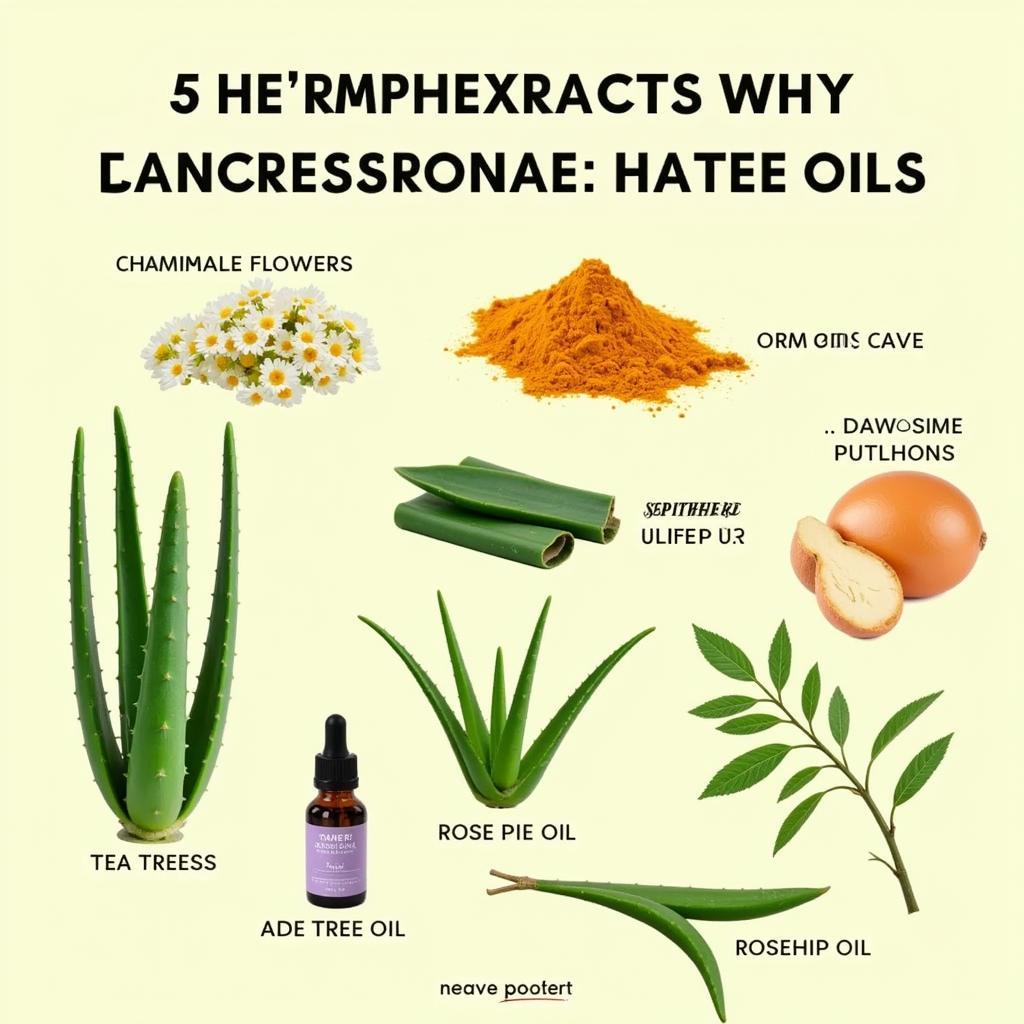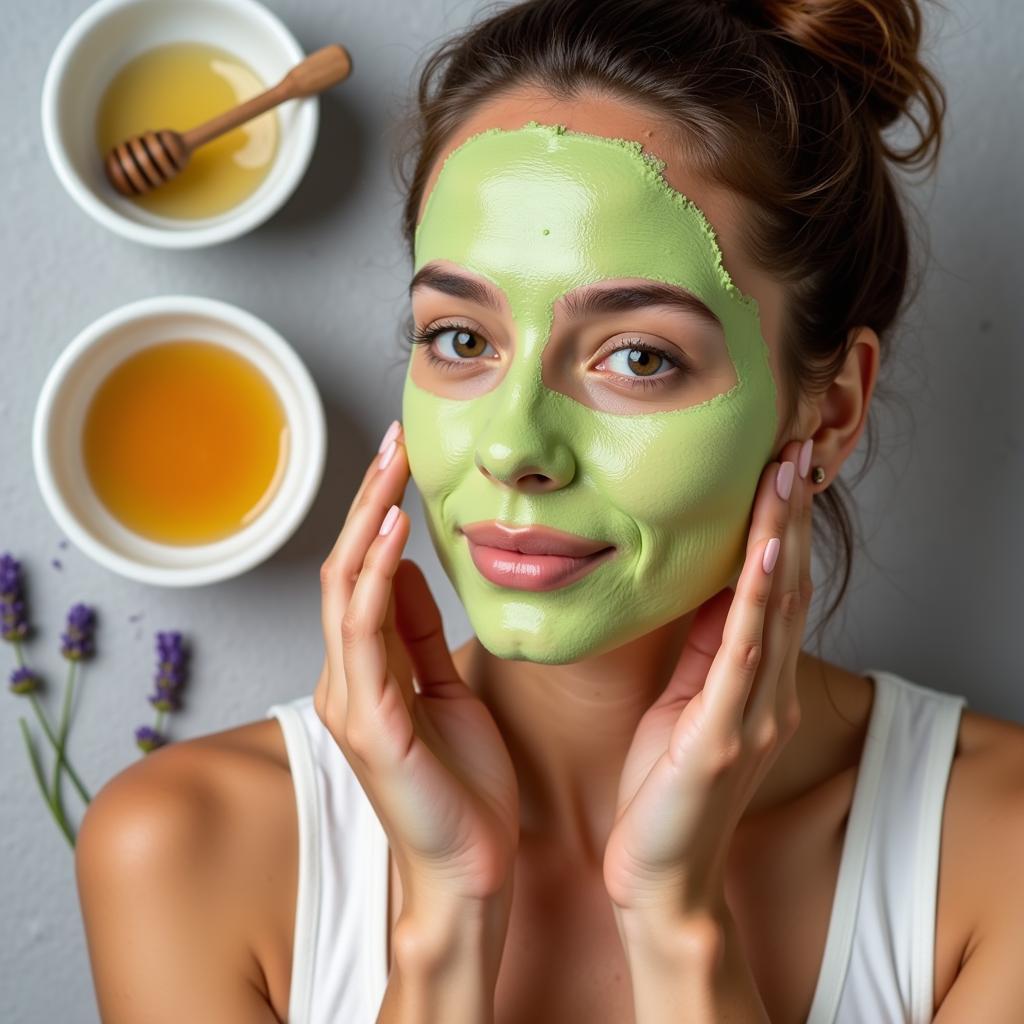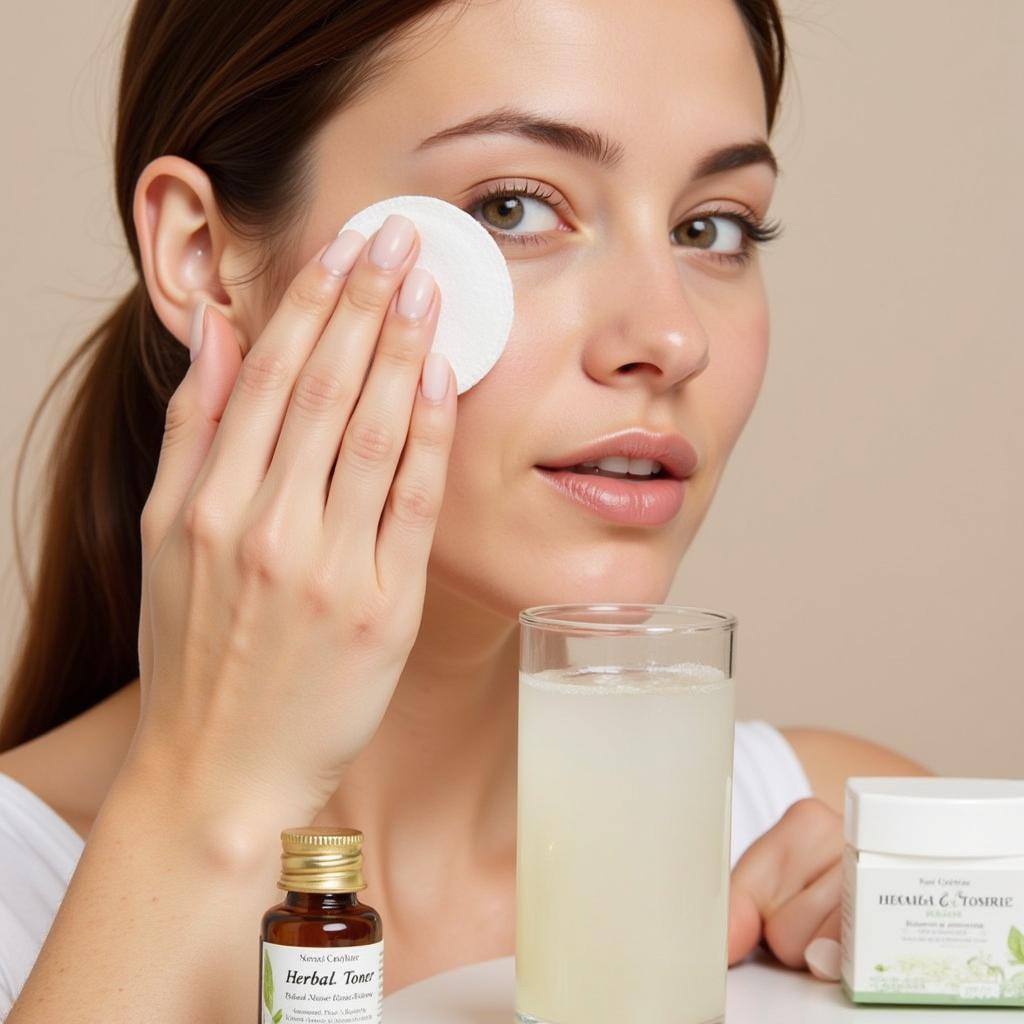Herbal face food: the cure for dull and tired skin? This is a question many of us ponder as we search for the perfect solution to revitalize our complexions. While the concept of “herbal face food” might conjure images of leafy greens plastered on our faces, it’s a much broader and more nuanced topic than that. Let’s dive into the world of natural skincare and explore the potential of herbs to transform your skin.
Unlocking the Power of Herbal Face Food
What exactly is herbal face food? It encompasses a range of natural ingredients derived from plants, including herbs, flowers, fruits, and vegetables, that are believed to offer numerous benefits for skin health. These ingredients can be incorporated into skincare routines through various methods, such as DIY face masks, herbal infusions in cleansers and toners, or even consuming specific herbs and foods that promote healthy skin from within.
Targeted Solutions for Specific Skin Concerns
Different herbs offer unique properties that can address various skin concerns. For example, chamomile is known for its calming and anti-inflammatory properties, making it ideal for sensitive or irritated skin. Meanwhile, turmeric boasts potent antioxidant and anti-inflammatory effects, helping to brighten the complexion and reduce the appearance of blemishes. Aloe vera, a succulent known for its soothing and hydrating properties, can be a lifesaver for sunburned or dry skin.
Choosing the right herbal face food for your specific needs is key to achieving optimal results. If you’re struggling with acne, look for herbs with antibacterial and anti-inflammatory properties, such as tea tree oil or calendula. For dry skin, consider hydrating ingredients like hyaluronic acid (found naturally in some plants) and rosehip oil.
 Herbal face food ingredients for glowing skin
Herbal face food ingredients for glowing skin
Is Herbal Face Food Really the Cure?
While herbal face food can undoubtedly contribute to healthier and more radiant skin, it’s important to approach the concept of a “cure” with caution. There is no single magic bullet for perfect skin, and what works for one person may not work for another. Furthermore, serious skin conditions should always be addressed by a dermatologist. However, incorporating herbal ingredients into your skincare routine can be a valuable complement to a healthy lifestyle and a well-rounded skincare regimen.
DIY Recipes for Radiant Skin
One of the most enjoyable aspects of herbal face food is the ability to create your own customized skincare concoctions. Simple DIY face masks can be made using ingredients readily available in your kitchen or garden. For example, a mask made with mashed avocado, honey, and a few drops of lavender essential oil can provide deep hydration and a calming aromatherapy experience.
 DIY Herbal Face Mask Recipe for Glowing Skin
DIY Herbal Face Mask Recipe for Glowing Skin
Integrating Herbal Face Food into Your Routine
Incorporating herbal face food into your daily routine doesn’t have to be complicated. Start by identifying your skin type and specific concerns, and then research which herbs are best suited to address those issues. You can experiment with different DIY recipes or look for commercially available skincare products that incorporate natural herbal ingredients.
Expert Insights on Herbal Skincare
“Herbal face food is not just a trend; it’s a return to traditional skincare practices that prioritize natural ingredients,” says Dr. Anya Sharma, a renowned dermatologist specializing in holistic skincare. “By harnessing the power of plants, we can nourish and revitalize our skin in a gentle and effective way.”
Another expert, herbalist and skincare formulator, Ms. Eliza Green, adds, “The key is to choose high-quality, organic ingredients and to listen to your skin’s unique needs. Start slowly and observe how your skin responds to each new ingredient.”
 Woman Applying Herbal Toner to Her Face
Woman Applying Herbal Toner to Her Face
Herbal Face Food: A Natural Path to Healthier Skin
Herbal face food offers a natural and holistic approach to skincare. By understanding the unique properties of different herbs and incorporating them into your routine, you can unlock their potential to revitalize and nourish your skin. While it may not be a “cure-all,” herbal face food can be a valuable tool in your journey towards achieving healthy, radiant skin. Remember to consult with a dermatologist for any serious skin concerns.
FAQ
- Is herbal face food safe for all skin types? While generally safe, it’s important to patch test new ingredients to avoid allergic reactions.
- How often should I use herbal face masks? 1-2 times a week is usually sufficient, depending on your skin’s needs.
- Where can I find high-quality herbal skincare ingredients? Look for reputable online retailers or health food stores specializing in organic products.
- Can I combine different herbs in my DIY face masks? Yes, you can experiment with different combinations to create customized blends that address your specific skin concerns.
- What if I don’t see immediate results? Consistency is key. It may take several weeks of regular use to notice significant changes in your skin.
- Are there any side effects to using herbal face food? Some herbs can cause photosensitivity, so always use sunscreen during the day.
- Can I use herbal face food if I have sensitive skin? Choose calming herbs like chamomile and avoid harsh ingredients like lemon juice.
Need further assistance?
For more information and personalized skincare advice, explore these resources:
- Our blog post on “Natural Skincare Remedies for Acne”
- Our guide to “Choosing the Right Herbs for Your Skin Type”
Contact us for support: Phone: 02437655121, Email: minacones@gmail.com or visit us at: 3PGH+8R9, ĐT70A, thôn Trung, Bắc Từ Liêm, Hà Nội, Việt Nam. Our customer service team is available 24/7.